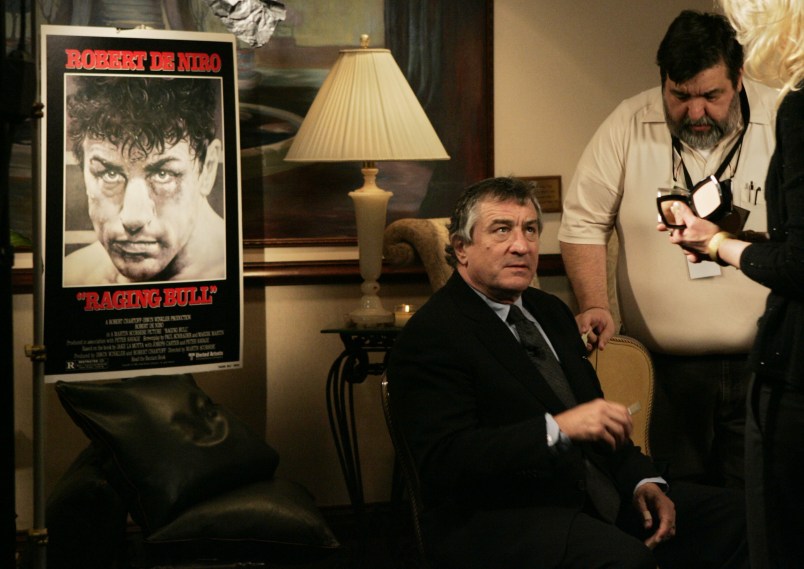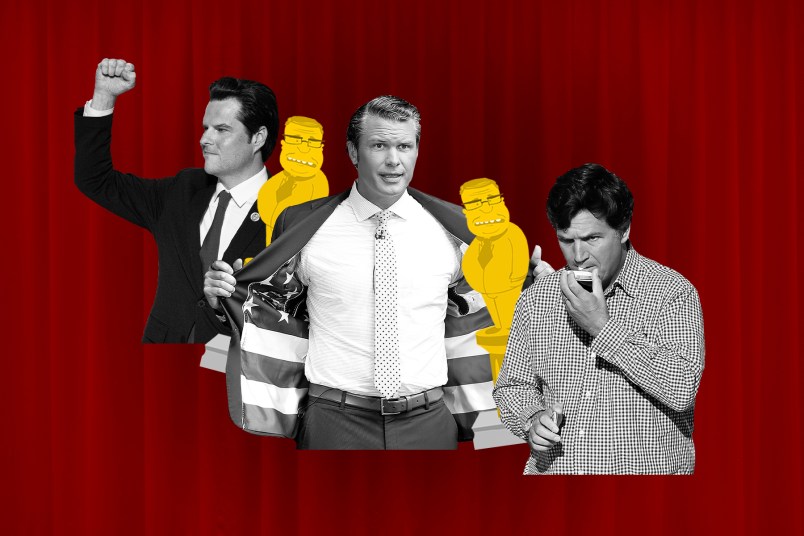WASHINGTON (AP) — The Supreme Court ruled Monday that a copyright dispute over the 1980 Oscar-winning movie “Raging Bull” can go another round in court.
The justices said in a 6-3 decision that Paula Petrella, daughter of the late screenwriter Frank Petrella, did not wait too long to file her lawsuit against Metro-Goldwyn-Mayer claiming an interest in the film.
Petrella’s father collaborated with legendary boxer Jake LaMotta on a book and two screenplays, which inspired the movie directed by Martin Scorsese and starring Robert DeNiro. The elder Petrella died in 1981, with copyrights reverting to his daughter.
She sued MGM in 2009 seeking royalties from continuing commercial use of the film. But a federal judge said she waited too long because she had been aware of the potential to file a lawsuit as early as 1991. The 9th U.S. Circuit Court of Appeals agreed, relying on the studio’s argument that Petrella’s delay of nearly two decades in bringing the case was unreasonable.
The Supreme Court reversed, giving Petrella a chance to resurrect her lawsuit. The decision is a blow to Hollywood studios, which have long relied on the legal doctrine of unreasonable delay to prevent distant relatives and estates from bringing copyright claims years or decades after movies have been released.
Federal copyright law allows people to bring copyright claims within three years of an infringing act. Petrella’s claim fell within that time because the studio continued to release the film on DVD and other formats for years and every new release essentially reset the clock for copyright purposes.
MGM argued that Petrella delayed filing her case on purpose in hopes of getting more money, saying she waited until after the 25th anniversary of the movie in 2005 to press her claim. Meanwhile, the studio had invested $8.5 million to distribute and promote the film assuming there was no other claim to ownership.
Writing for the court, Justice Ruth Bader Ginsburg said Petrella notified the studio of her copyright claims in 1991, well before MGM invested millions of dollars in releasing a new edition of the film.
“Allowing Petrella’s suit to go forward will put at risk only a fraction of the income MGM has earned during that period and will work no unjust hardship on innocent third parties, such as consumers who have purchased copies of ‘Raging Bull,'” Ginsburg said.
Ginsburg was joined by Justices Antonin Scalia, Clarence Thomas, Samuel Alito, Sonia Sotomayor and Elena Kagan.
In dissent, Justice Stephen Breyer said the legal doctrine of unreasonable delay should apply to Petrella’s case because she waited 18 years after renewing her copyright to file a lawsuit. The effect of delaying legal action can give plaintiffs an unfair advantage in a copyright claim and should be a viable defense, Breyer said.
Breyer was joined in dissent by Chief Justice John Roberts and Justice Anthony Kennedy.
Groups including the Motion Picture Association of America, Consumer Electronics Association, DirecTV and TiVo sided with MGM, arguing that it’s unfair to allow plaintiffs to wait years or decades to file copyright claims while studios invest millions in their products.
But Petrella won support from groups including the Authors Guild and the Songwriters Guild of America. They argued that the rolling three-year copyright protection is fair to artists and gives them incentive to create their works.
___
Follow Sam Hananel on Twitter at http://twitter.com/SamHananelAP
Copyright 2014 The Associated Press. All rights reserved. This material may not be published, broadcast, rewritten or redistributed.










“What did you hear!?”
“I heard THINGS!”
Bad decision. While Petrella seems to have had a valid claim against the studio, she should nonetheless either pursue her case within a reasonable time period, or forfeit her claims.
The studio re-issues these films with new copyrights to keep the copyrights fresh (as well as to rejuvenate sales, but keeping copyrights “fresh” is a driving concern as well), but claim that that doesn’t also keep the original copyright holders’ rights fresh?
Sorry, but you (studios) are playing the system. If you play the system, you have to be ready to be bitten hard by technicalities.
Uhh, I might be wrong but I think the proper legal term for “unreasonable delay” is “laches”.